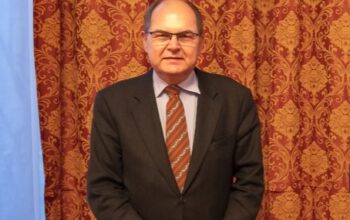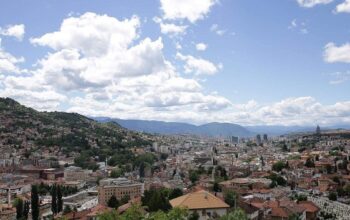The Western powers have dominated the “international community’s” policies toward BiH over the last two decades, but Turkey’s display of power at the 22-23 May 2012 Peace Implementation Council (PIC) Steering Board meeting may indicate a significant change.
The PIC is the ad hoc, self-appointed group of states and international institutions that oversees the international supervision of BiH. Most decisions of the PIC are made by its Steering Board, which is chaired by the High Representative. The Steering Board’s members are Canada, France, Germany, Italy, Japan, Russia, the United Kingdom, the United States, the Presidency of the European Union, the European Commission, and the Organization of the Islamic Conference, which is represented by Turkey.
For several years, the PIC Steering Board has been discussing termination of international supervision of the Brčko District in BiH. For the last year termination appeared imminent, as the traditional powers of the PIC, including the United States and United Kingdom, appeared ready to agree with most European members who favored termination. Some Bosniak leaders, however, urged continuation of international rule, seeing the High Representative and his deputy, the Brčko Supervisor, as allied with their broader political program. The May meeting of the PIC Steering Board and its ambiguous decision to “suspend” rather than terminate supervision was a victory for these Bosniak leaders and was less about Brčko than another example of the increasingly erratic international intervention into the internal maneuvering among BiH political parties. Lately Turkey has lined up on the side of Bakir Izetbegovic’s SDA.
The PIC Steering Board, at its 22-23 May meeting, allowed Turkey, representing the SDA position, to set aside its carefully coordinated consensus on Brčko. This action by the PIC raises important questions for those supporting continued development of a functioning, democratic political system in BiH.
The presence and influence of Turkey in BiH is unmistakable. Not only is the Ottoman fingerprint visible in BiH architecture and culture, but modern Turkey is increasingly trying to shape the politics, economics and society of BiH.
The rising tensions between the SDA and other political parties in BiH, particularly with regard to the breakdown of the SDA/SDP coalition, may further open the door for Turkey’s intervention into BiH internal politics. Indeed, it is likely that Turkey’s support has emboldened the SDA leadership to block implementation of the six-party agreements on such matters as the BiH budget, resolution of state and defense property issues, and other initiatives that are important for the Euro-Atlantic integration and economic progress of BiH.


